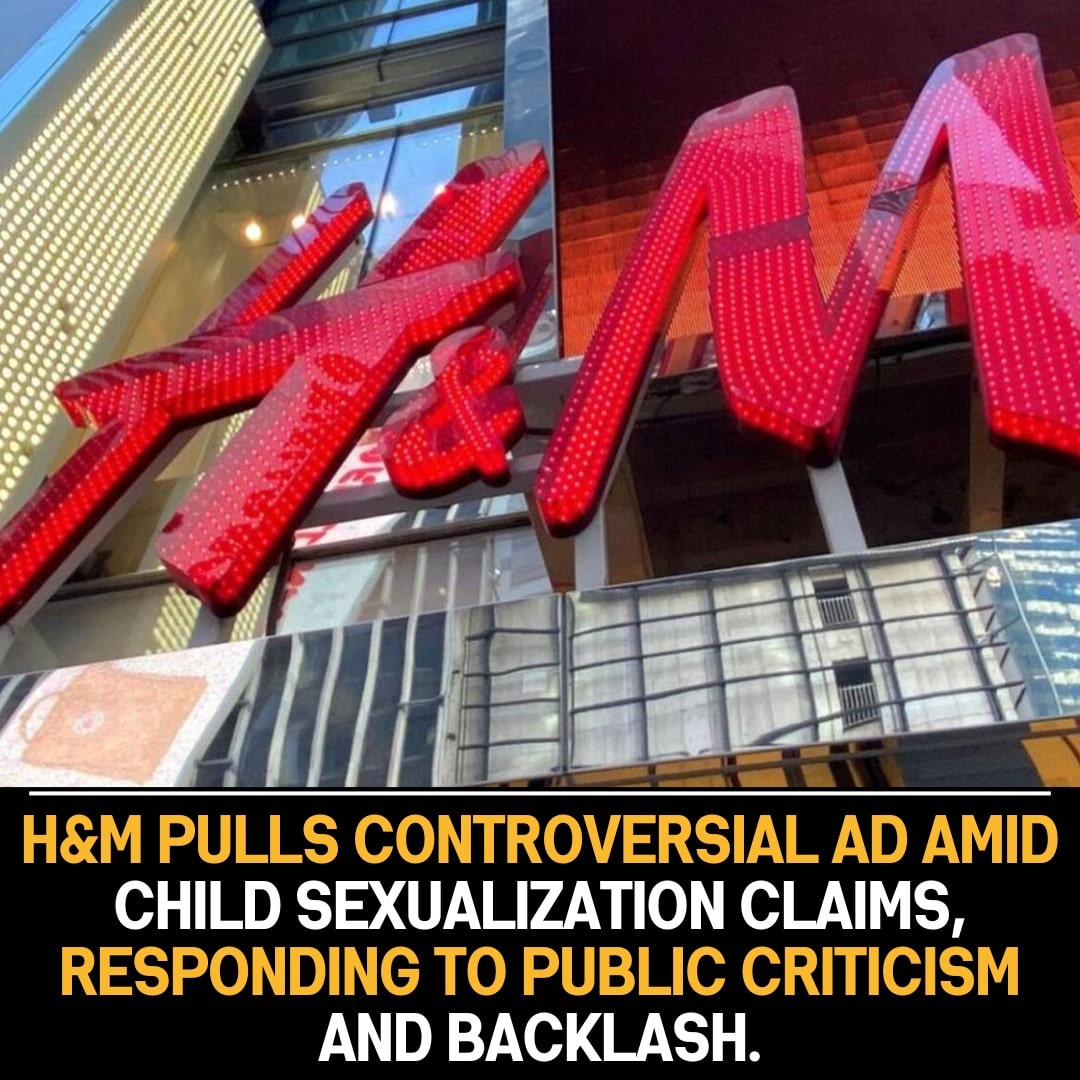H&M, a global fashion retailer, recently found itself embroiled in controversy over an advertising campaign that stirred accusations of sexualizing children. The contentious ad, which garnered significant public attention and criticism, led to the swift decision by H&M to withdraw it from circulation. This move underscores the growing awareness and sensitivity surrounding inappropriate content in the realm of advertising.
The controversial advertisement featured elements that raised concerns about the potential sexualization of children. Critics argued that certain aspects of the campaign crossed ethical boundaries, prompting a wave of backlash from the public. Social media platforms became a focal point for the dissemination of these concerns, amplifying the pressure on H&M to address the issue promptly.
In response to the mounting criticism, H&M made the decision to pull the ad from circulation. This proactive measure aimed to address public concerns and demonstrate accountability in the face of controversy. The company’s swift action reflects a recognition of the potential harm that such content can cause and an acknowledgment of the responsibility that comes with a global brand’s reach.
The incident highlights the broader conversation around responsible advertising practices. In an era where content is disseminated rapidly through various media channels, companies are increasingly under scrutiny for the impact of their messaging on diverse audiences. The H&M controversy serves as a reminder that brands must be vigilant in ensuring that their marketing materials align with ethical standards and societal expectations.
Moreover, the episode underscores the importance of consumer activism and the power of public opinion in influencing corporate decisions. The collective outcry on social media platforms played a pivotal role in prompting H&M’s withdrawal of the controversial ad. This dynamic illustrates the significant role that consumers now play in shaping corporate behavior and holding brands accountable for their actions.
As discussions around appropriate content in advertising continue to evolve, this incident serves as a case study in the delicate balance that brands must strike. Navigating the complex landscape of cultural sensitivities and societal expectations requires a nuanced approach to advertising that prioritizes ethical considerations and safeguards against potential controversies.
In conclusion, H&M’s decision to withdraw the controversial ad reflects the increasing importance of responsible advertising in the modern era. The incident serves as a wake-up call for brands to be mindful of the potential impact of their messaging and to prioritize ethical considerations in their marketing strategies.









